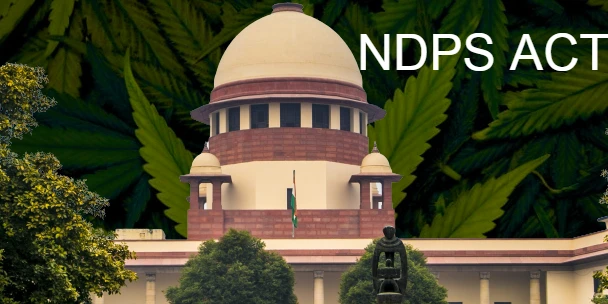Introduction
Welcome to the official blog of the Law Offices of Kr. Vivek Tanwar Advocate and Associates, where we are dedicated to providing litigation support services for matters related to the Confessional Statements. In today’s blog post, we aim to shed light on the prevailing issues surrounding the NDPS Act, the legal framework for their protection, and the steps we can take as a society to combat these acts. Join us as we explore this critical subject and empower you with the knowledge to protect your rights and safety.
In a recent legal development, the Supreme Court of India has issued a landmark ruling regarding the admissibility of confessional statements made under Section 67 of the Narcotic Drugs and Psychotropic Substances Act, 1985 (NDPS Act). This ruling comes in the context of a drug racket case spanning multiple states, including Uttar Pradesh, Punjab, and Rajasthan.
The Case
The case at hand involved a 3-Judge Bench comprising Chief Justice N. V. Ramana and Justices Krishna Murari and Hima Kohli. They reversed the Delhi High Court’s order that had granted post-arrest bail to the respondent accused in a drug-related case. While the Supreme Court reiterated that confessional statements under Section 67 of the NDPS Act are inadmissible, it found other compelling evidence indicating the respondent’s involvement in the alleged crime.
Background
The case was initiated by the Narcotics Control Bureau (NCB) to challenge the Delhi High Court’s order, which had granted post-arrest bail to the accused. The respondent was facing trial for offences under Sections 8/22 and 29 of the NDPS Act. The NCB had seized a parcel containing 50,000 Tramadol tablets, weighing 20 kgs, based on confidential information suggesting that Gaurav Kumar Aggarwal in Agra had dispatched the parcel, suspected to contain NRX tablets, to Manoj Kumar (the respondent) in Ludhiana, Punjab. Gaurav Kumar Aggarwal revealed that the recovered drugs had been booked by the respondent from Promod Jaipuria, a resident of Jaipur. A subsequent raid at Promod Jaipuria’s godown uncovered a substantial cache of drugs, including various psychotropic substances, further implicating the accused.
Contentions of the Parties
The NCB contended that the High Court had erred by not considering that the large quantities of narcotic drugs and injections were discovered based on disclosures made by the respondent himself. Therefore, the terms and conditions imposed under Section 37 of the NDPS Act should have been applied.
In contrast, the respondent argued that he had no connection to the consignment in question, which was neither booked by him nor for him. Additionally, no illegal substances were found in his possession during the search of his residence and shop.
Provisions for Bail under the NDPS Act
The Supreme Court emphasized the need to consider both the limitations imposed by Section 439 of the Criminal Procedure Code (CrPC) and the restrictions outlined in Section 37(1)(b) of the NDPS Act. Section 37(1)(b) specifies that the public prosecutor must be given an opportunity to oppose the accused’s release application. The Court must also be satisfied that there are reasonable grounds to believe the accused is not guilty of the alleged offence and that the accused is unlikely to commit further offences while on bail.
Admissibility of Confessional Statements under S. 67 NDPS Act
The Court upheld that the High Court was correct in holding that the NCB could not rely on the confessional statements of the respondent and other co-accused recorded under Section 67 of the NDPS Act. This decision was in line with the legal precedent set in Tofan Singh v. State of T.N., where such confessional statements were deemed inadmissible.
Findings and Conclusion
Considering the evidence submitted by the NCB, the Court determined that even without the confessional statements, there were compelling circumstances indicating the respondent’s involvement in drug-related offences. The disclosures made by the respondent, the discovery of a significant amount of drugs in the possession of a co-accused, Promod Jaipuria, and call detail records linking the accused individuals supported this conclusion.
The Court concluded that the High Court had erred in releasing the respondent on post-arrest bail. It emphasized that the length of custody or the commencement of trial should not be the sole reason for granting bail under Section 37 of the NDPS Act. Consequently, the Court set aside the impugned order, cancelled the bail bonds, and directed the immediate custody of the respondent.
Conclusion
The Supreme Court’s ruling has clarified the admissibility of confessional statements under Section 67 of the NDPS Act while underscoring the importance of considering all available evidence when determining bail under the Act. This case serves as a significant legal precedent in drug-related offences under the NDPS Act.
We are a law firm in the name and style of Law Offices of Kr. Vivek Tanwar Advocate and Associates at Gurugram and Rewari. We are providing litigation support services for matters related to the NDPS Act AND IEA Act.

